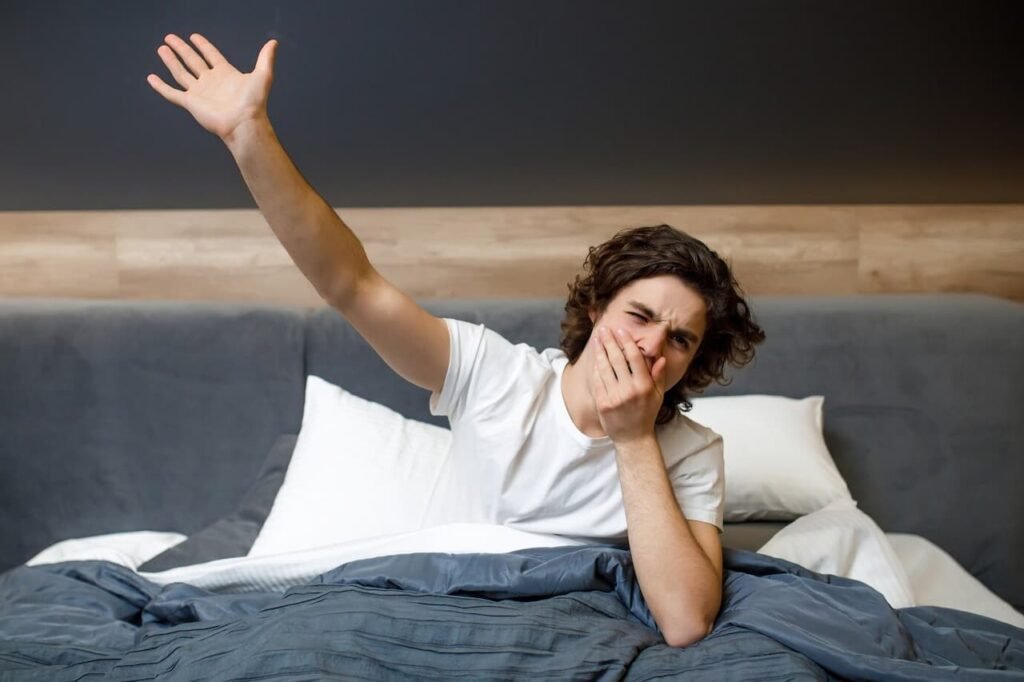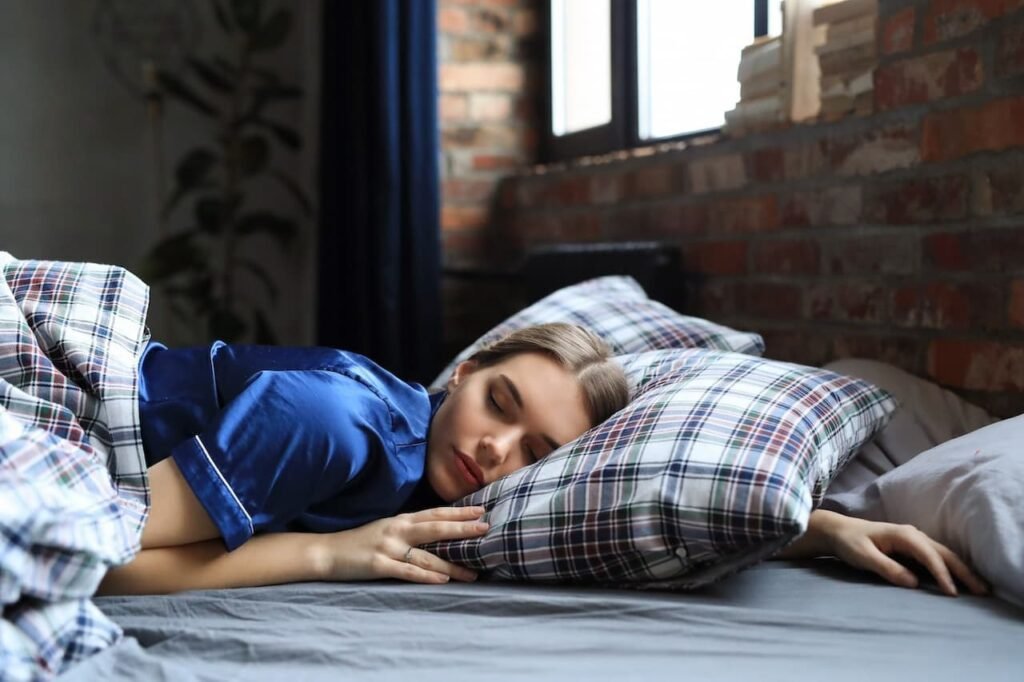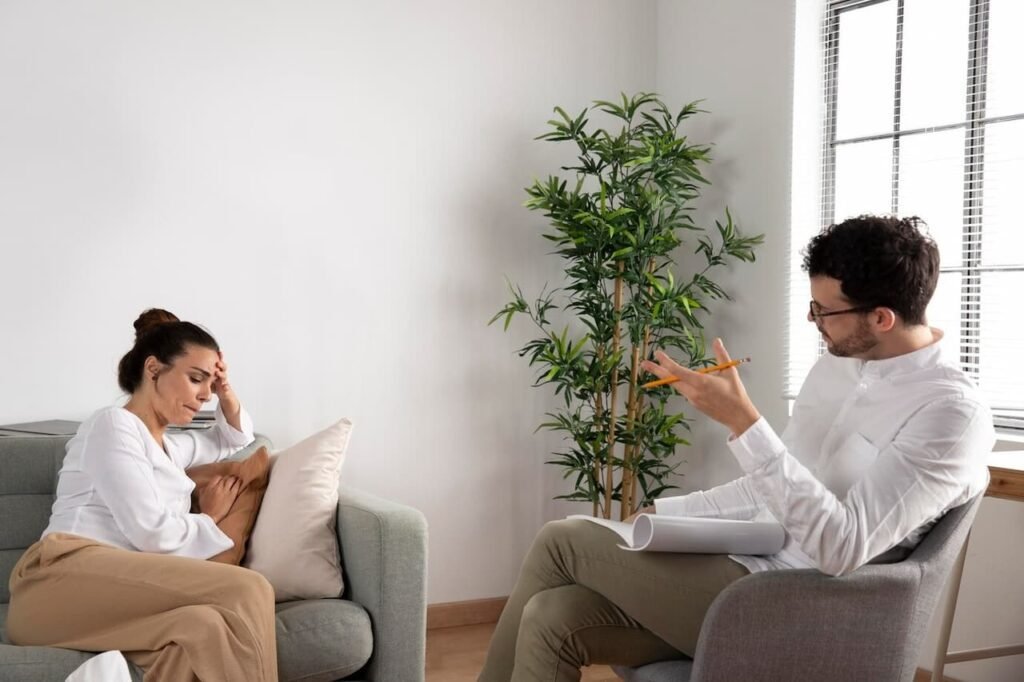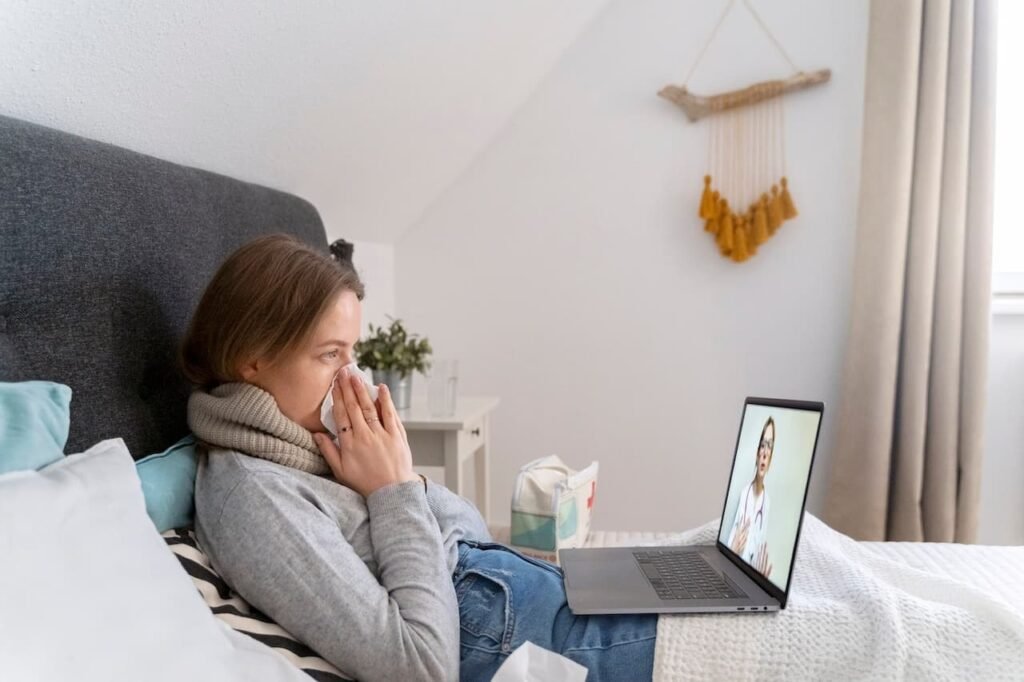Top Psychologists for Clinomania Counselling
Clinomania Counselling is getting popular these days as the cases of clinomania are rising rapidly. Each and every symptom of the clinomania is targeted and treated with proper counselling in the sessions. So, before trying to understand clinomania counselling in detail, let’s understand a little about clinomania, how to recognize clinomania and what causes it?
Table of Contents
Toggle
What is Clinomania?
Clinomania is a condition wherein a person has a strong desire to stay in bed and avoid getting up or facing the day as the person has zero intrinsic motivation to get up from the bed. It’s more than just enjoying sleep; it’s an overwhelming need to be in bed, even if it interferes with one’s daily responsibilities.
People with clinomania might find it challenging to get out of bed, go to work or school, or do other important tasks. They spend long hours lying on their bed and doing nothing throughout the day. They don’t mind much about being unproductive and being on bed all day as they don’t have any desire only to do some task and achieve any goal in life.
This condition can have various causes, including underlying mental health issues like depression or anxiety. It can also be a symptom of other medical conditions or chronic physical illness. Clinomania can really disrupt a person’s life and relationships, as they may neglect their responsibilities and social activities in favor of staying in bed.
It is not like they don’t realize that they are being distant, unproductive and lazy but the reality is that they are aware of what they are doing but are not able to do something about it due to zero motivation left in them.

Signs that You may have Clinomania/ Symptoms of Clinomania
While “clinomania” is not a recognized medical term or diagnosis in the field of psychology or psychiatry, if you’re concerned that someone may be excessively avoiding getting out of bed and responsibilities, it could be indicative of underlying issues like depression or other mental health conditions. The symptoms of the clinomania are targeted first in the clinomania counselling sessions so that the client gets some relief from it. Here are some signs that may suggest such behaviour:
- The person is spending an inordinate amount of time in bed well beyond what is necessary for rest and sleep.
- The person is avoiding or neglecting daily responsibilities such as work, school, chores, or social activities.
- The person is withdrawing from social interactions and preferring to stay in bed rather than engaging with others.
- The person is demonstrating a profound lack of motivation or enthusiasm for activities once enjoyed.
- The person is showing frequent changes in sleep patterns, which can include excessive daytime sleepiness and difficulty falling asleep at night.
- The person is exhibiting persistent feelings of sadness, hopelessness, or irritability.
- The person doesn’t see fun in getting out of the bed.
- The person is experiencing either insomnia or hypersomnia.
- The person often is seemed as crazy, lazy or procrastinator by everyone.
- The person is experiencing physical symptoms such as changes in appetite, weight gain or loss, and a decline in personal hygiene.
- The person is finding it hard to focus on tasks or concentrate on simple activities.

Causes of Clinomania
1. Mood Disorders
Conditions like depression or bipolar disorder can lead to a lack of motivation and a desire to stay in bed to escape negative emotions.
2. Anxiety Disorders
People with anxiety may feel overwhelmed by daily tasks and may seek refuge in bed as a way to avoid stress and anxiety-inducing situations.
3. Chronic Fatigue
Conditions like chronic fatigue syndrome can result in extreme tiredness and a constant desire to rest, which may lead to spending excessive time in bed.
4. Sleep Disorders
Sleep disorders like hypersomnia or insomnia can disrupt sleep patterns and lead to an increased desire to stay in bed during the day. Spending too much time spent in bed can also be a symptom of hypersomnia which is a disorder of excessive sleepiness that occurs even when a person should be awake.
5. Stress and Burnout
High levels of stress and burnout due to fast life responsibilities and burdens can make people want to withdraw from their responsibilities and seek comfort in bed.
6. Other Mental Health Issues
Conditions such as agoraphobia, social anxiety, depression, obsessive-compulsive disorders, overthinking, experience of failure or rejection, stress, grief and antisocial personality disorder are much likely to make a person develop clinomania.
7. Physical Illness
Severe physical illnesses, chronic pain, or disabilities can also lead to a desire to stay in bed for comfort and relief.

What happens in Clinomania Counselling
Clinomania counselling is the best treatment course for Clinomania. The Assessment of the client is done for understanding the base of the client’s current problems and the level and extremity of the core beliefs. Talk therapy sessions are done to establish the rapport and making the client comfortable as clinomaniacs have zero motivation and desire to do anything on their own. Thus, goals are set together and intervention is planned to achieve those goals.
Intervention involves focusing completely on a person’s thought patterns and core beliefs which are causing unproductive and irrational behaviors. The main aim of the clinomania counselling is to challenge the clients on their thought patterns and core beliefs. After challenging these core beliefs, clients are asked to look out for evidence and try to support their beliefs with some proof. Clients themselves examine their beliefs and start challenging them.
Clinomaniac’s thought processes are changed altogether which helps in increasing their intrinsic motivation, set goals and try to achieve them also. Clients suffering from clinomania have mental and emotional difficulties that makes them have a distorted reality. They develop irrational and illogical thoughts like “I am not able to get up from bed”.
Various techniques derived from Behavioral Therapy and Cognitive Behavioral Therapy are used like cognitive restructuring, guided discovery, exposure therapy, journaling, cognitive behavioral modification, stress inoculation training and role playing. All these techniques are applied by the counsellor in the form of exercises, activities or talking sessions in the clinomania counselling setting.
Besides the clinomania counselling, various strategies are suggested to clinomaniacs to do on daily basis that will help to manage clinomania and improve one’s quality of life as well. Some of those strategies/tips are:

1. Self-Care
You should learn to prioritize self-care and engage in activities that bring joy and relaxation, such as hobbies and leisure pursuits. Once one has the right amount of motivation to do something for oneself then clinomania becomes really easy to manage.
2. Establish a Routine
Create a structured daily schedule with set wake-up and bedtime times. Stick to this routine to help regulate your sleep patterns and reduce the desire to stay in bed all day. It is important to have a healthy sleep routine so that there will be no urge to stay in bed which is itself is very important for clinomaniacs. Make your sleep schedule and follow it every single day to make it a habit in your everyday life.
3. Physical Activity
Regular exercise has benefits of improving mood and energy levels. You can start with light exercises and gradually increase the intensity. Exercise also increases happy hormones or endorphins which increase intrinsic motivation and desire to do any work. So, doing exercise will help clinomaniacs to get up from bed and do something for themselves. One can also practice relaxation exercises, meditation, and mindfulness to manage stress and anxiety which are sometimes cause of clinomania.

4. Therapy
Techniques of Behavioral Therapy or Cognitive-behavioral therapy (CBT) can help address unhealthy thought patterns and behaviors that may contribute to excessive bed rest. These techniques are designed and applied in such a way that they change the thinking pattern of the client from negative and irrational to positive and rational. These techniques are usually applied in clinomania counselling but clients are also told to practice them at home.
5. Limit Bed Use
It is one of the best techniques to manage clinomania and regulate its effects. One has to reserve their bed for sleeping and intimate activities. Avoid working, eating, or using electronic devices in bed, as this can reinforce the association with being awake in bed.
6. Monitor Screen Time
Limit excessive screen time, particularly before bedtime, as this can disrupt sleep patterns. As they emit blue light that could affect circadian timing and the consistent sleep schedule. Totally avoid screen time couple of hours before bed and do something relaxing before going to bed. Engage yourself in some other activity like reading a book, meditation, listening to music, etc. that is good for your mental health. This will help you to sleep quickly and peacefully.
7. Consult a Mental Health Professional
If you believe there is an underlying issue causing these behaviors, such as depression, anxiety, or a sleep disorder like insomnia or hypersomnia, consult a doctor or mental health professional for a thorough evaluation and diagnosis of the clinomania and then to receive clinomania counselling.

Seek Clinomania Counselling at Medavas
It’s essential for individuals who feel an overwhelming need to stay in bed and avoid daily activities to consult a mental health professional for a proper evaluation and diagnosis. Professionals like Psychologists/ Counsellors can help to determine the underlying causes and provide clinomania counselling and required support.
If you or someone you know is struggling with clinomania, it’s important to seek clinomania counselling from a healthcare professional. And that kind of professional treatment is available on our Website Medavas where psychologists/ counsellors are well-trained and skilled in their work. So, if you need help, then don’t hesitate to contact professionals at our website and book the session at your earliest convenience for clinomania counselling.
Frequently Asked Questions (FAQs) for Clinomania Counselling
Are Psychological Disorders linked to Clinomania?
Clinomania, in which there is an excessive desire to stay in bed and avoid responsibilities, it might be better understood as a symptom of an underlying issue such as depression, anxiety, or other mood disorders. People experiencing these symptoms may have a strong inclination to stay in bed as a way of coping with their emotional difficulties.
Does Social Support help in dealing with clinomania?
Yes, it definitely does. Staying connected with friends and family, and engaging in social activities can boost mood and motivation and can help clinomaniacs to get up from bed and engage socially with other people.
What one can do as a relaxation technique to deal with clinomania?
Clinomaniacs can do meditation, deep-breathing, mindfulness, chanting a peaceful word, listen to calming music, talk to someone, journal, yoga, etc.





















